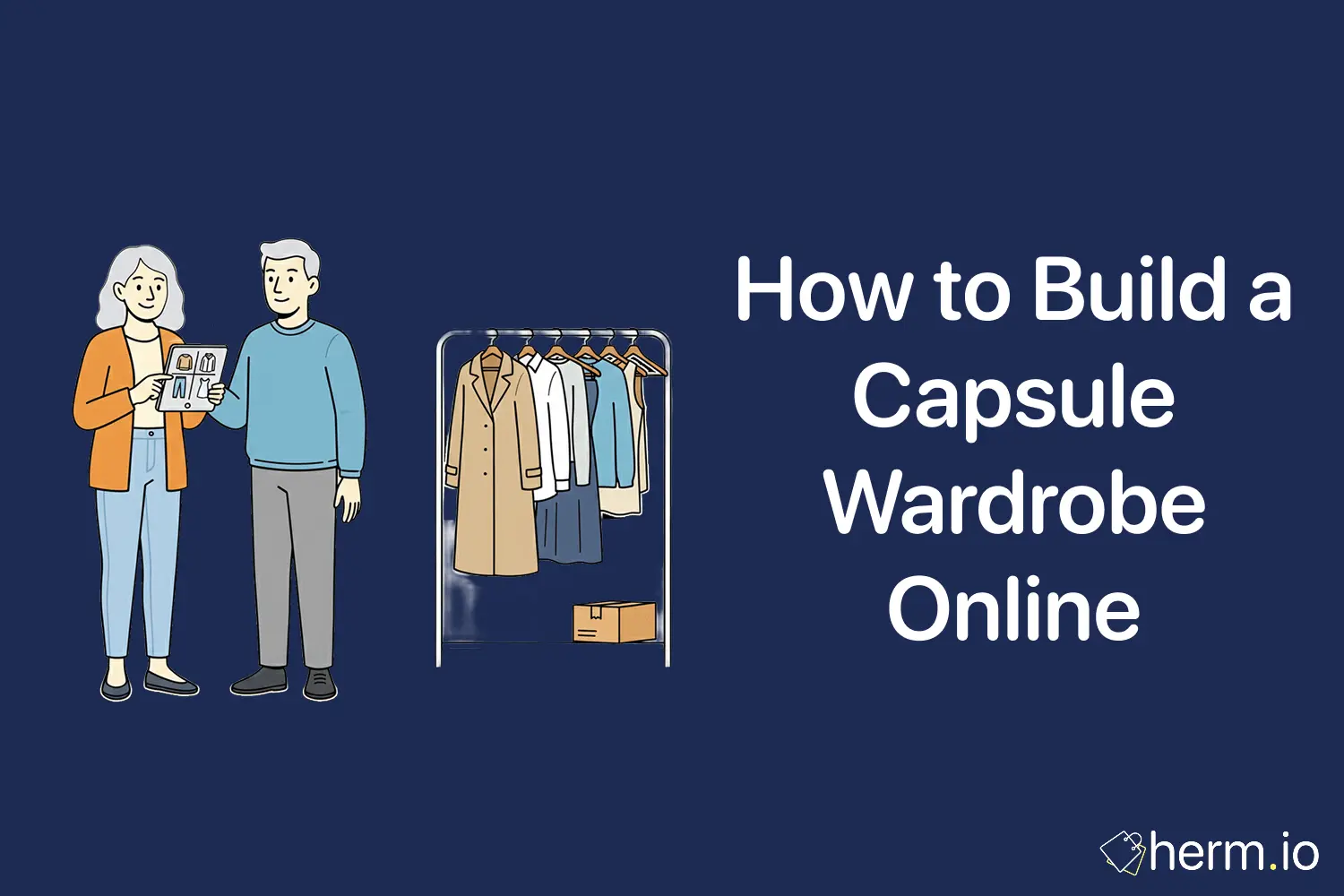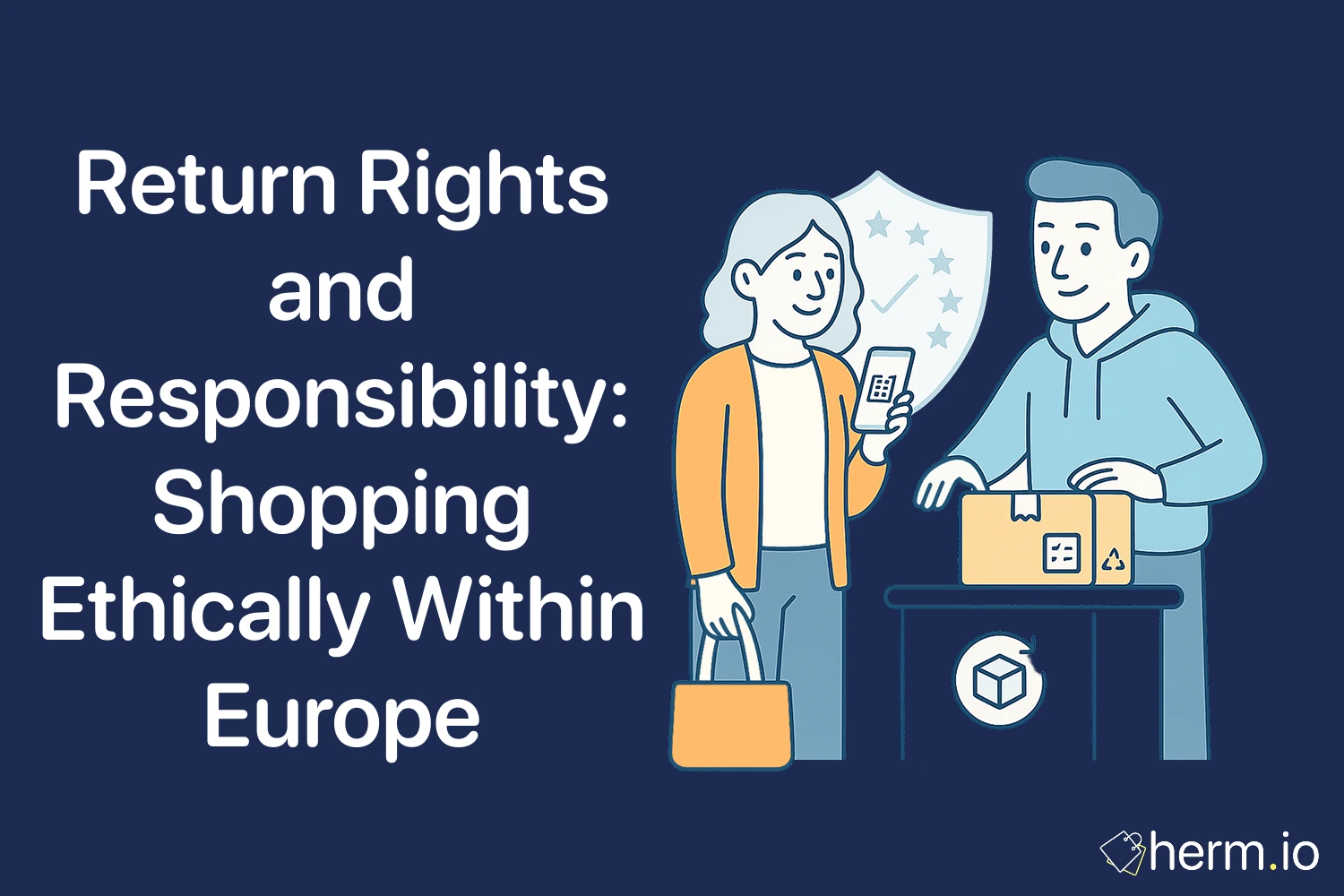
Last month, I found myself staring at a checkout screen filled with supposedly "green" products, wondering if my choices genuinely mattered. What strikes me as particularly important is how our individual purchasing decisions ripple outward, creating waves of change that extend far beyond our shopping baskets.
Like watching patterns emerge in nature, sustainable shopping requires patience and observation. We have a responsibility to look beyond clever marketing and seek products that truly align with our environmental values. This guide will help you identify authentic eco-friendly options across European online marketplaces, saving money while protecting our planet.
Quick Wins: Start These Sustainable Swaps Today
- Switch to beeswax wraps instead of cling film—save roughly £15 yearly on plastic alternatives
- Choose concentrated cleaning refills to cut packaging waste by 80%
- Buy organic cotton basics that last twice as long as conventional options
- Select bamboo personal care items that compost naturally after use
- Bundle orders to reduce delivery emissions and often qualify for free shipping
Why Your Shopping Choices Create Change
Every purchase sends a signal through the marketplace. When you choose sustainable products, you're voting with your wallet for better farming practices, cleaner production methods, and fairer working conditions.
Consider the ripple effects of switching to plant-based cleaning products. Your purchase supports organic farming, reduces chemical runoff into waterways, and encourages other manufacturers to reformulate their products. Over time, these individual choices aggregate into market pressure that transforms entire industries.
What I find particularly encouraging is how sustainable options have become more accessible across Europe. Online marketplaces now offer transparent information about product origins, certifications, and environmental impact—making conscious choices easier than ever.
Transforming Your Home Environment
Kitchen Essentials That Work
Beeswax wraps represent one of the most practical swaps you can make. Unlike plastic cling film, these cotton wraps mould perfectly around bowls and sandwich crusts when warmed by your hands. A quality set costs around £12 and replaces hundreds of metres of plastic film over its lifetime.
Silicone storage bags offer another smart alternative. While the initial investment of £25 for a set might seem steep, these bags endure freezing, microwaving, and washing for years. I've been using the same set for over two years, and they still seal perfectly.
Glass storage containers made from recycled materials deserve special consideration. They resist staining, trap no odours, and look elegant enough for serving. A complete set typically costs £30-40 but eliminates the need for disposable containers entirely.
Cleaning Without Compromise
Plant-based cleaning products have evolved significantly in recent years. Concentrated formulas now match conventional cleaners' effectiveness while using 75% less packaging. Brands like Ecover offer refill stations across major European cities, allowing you to bring your own containers.
What strikes me as particularly clever is the concentrated refill system. A single concentrated pouch replaces multiple plastic bottles and costs roughly 40% less per litre than ready-made alternatives. Keep permanent glass spray bottles under your sink and simply add water when needed.
Compostable cleaning tools complete the sustainable cleaning kit. Coconut fibre sponges cost slightly more upfront (£3 versus £1 for synthetic versions) but break down naturally in compost bins after months of use.
Personal Care Revolution
Oral Health Innovations
Bamboo toothbrushes have become remarkably sophisticated. Premium versions feature ergonomic handles and precisely angled bristles that rival plastic alternatives. At £3 each, they cost similar to quality plastic brushes but decompose completely within months.
Natural silk floss in refillable glass containers transforms daily dental care. While a glass dispenser costs £8 initially, refill spools cost just £2 each and last for months. The silk biodegrades completely, unlike nylon alternatives that persist in landfills.
Skin and Hair Care Essentials
Zero-waste deodorants in reusable tins eliminate plastic packaging entirely. These concentrated formulas use natural ingredients like coconut oil and arrowroot powder, often proving more effective than conventional alternatives. A £8 tin typically lasts three months—comparable to supermarket prices.
Solid shampoo and conditioner bars deserve particular attention. A single bar replaces 2-3 plastic bottles and often costs 30% less per wash. The concentrated formulas work beautifully in hard water areas common across Europe, creating rich lather without sulfates.
Sustainable Fashion Choices
Natural Fibre Advantages
Organic cotton basics feel softer with each wash and maintain their shape longer than conventional alternatives. While a basic organic t-shirt might cost £18 versus £12 for conventional cotton, the superior durability means cost per wear often works out similarly.
Hemp and linen clothing thrives in European climates. These fibres regulate temperature naturally, improve with age, and require minimal water during cultivation. A linen summer dress at £45 might seem expensive initially, but its timeless style and durability provide excellent value.
Innovative Recycled Materials
Clothing made from recycled plastic bottles has reached impressive quality levels. A fleece jacket crafted from 25 recycled bottles costs roughly the same as conventional alternatives while preventing ocean pollution. The performance characteristics often exceed traditional materials.
Upcycled accessories offer unique style opportunities. Each piece tells a story while diverting waste from landfills. Scarves made from fabric scraps typically cost £15-25 and provide completely distinctive additions to your wardrobe.
Smart Delivery Strategies
Consolidating shipments reduces both costs and environmental impact. Many sustainable retailers offer "hold and ship" services, allowing you to accumulate items before delivery. This approach often qualifies for free shipping while reducing packaging and transport emissions.
Choosing standard delivery over express options significantly reduces carbon footprint. Express shipping frequently uses air transport, which generates 12 times more emissions than ground delivery. Planning purchases in advance allows for more sustainable shipping choices.
Where to Shop Sustainably
Greenweez (France) offers exceptional filtering options for organic, vegan, and zero-waste products. Their delivery network covers most of Europe efficiently.
Avocado Store (Germany) curates products meeting strict sustainability standards. Every item displays relevant certifications clearly, making informed choices straightforward.
Ethical Superstore (UK) stocks over 4,000 vetted products with detailed sustainability information. Their customer reviews focus specifically on environmental performance.
Original Unverpackt (Germany) pioneered package-free online shopping. Their refill system eliminates unnecessary packaging while offering competitive pricing.
Understanding Certifications
GOTS certification guarantees textiles contain at least 70% organic fibres while meeting strict environmental and social criteria. This standard covers the entire supply chain, ensuring fair wages and safe working conditions.
Fairtrade certification focuses on producer welfare, guaranteeing fair prices and community investment. Products bearing this mark support sustainable farming practices and worker rights.
Cradle to Cradle certification evaluates products across five categories: material health, recyclability, renewable energy use, water stewardship, and social fairness. This comprehensive approach identifies truly sustainable options.
Frequently Asked Questions
How much extra do sustainable products typically cost?
Initial prices often run 20-40% higher than conventional alternatives, but durability frequently makes cost per use comparable or better. Solid shampoo bars, for example, last 2-3 times longer than liquid versions, offsetting the higher upfront cost.
Which certifications matter most for everyday shopping?
GOTS for textiles, Fairtrade for food and personal care ingredients, and FSC for paper and wood products provide reliable sustainability indicators. EU Ecolabel offers broad environmental assurance across product categories.
Do consolidated deliveries really reduce environmental impact?
Absolutely. Combining multiple items into single shipments can reduce packaging by 60% and transport emissions by up to 40%. Most sustainable retailers encourage this practice through free shipping thresholds.
How can I verify product sustainability claims?
Look for specific certifications rather than vague "eco-friendly" claims. Check company websites for detailed sustainability information and third-party verification. Customer reviews often highlight whether products live up to environmental promises.
We have a responsibility to consider the broader implications of our purchasing decisions. Like watching patterns emerge in a forest ecosystem, sustainable shopping requires patience and observation. Each conscious choice contributes to a larger transformation that benefits everyone.
What strikes me as particularly hopeful is how these individual decisions aggregate into meaningful change. Your switch to sustainable products encourages retailers to expand green options, manufacturers to improve practices, and other consumers to consider their choices more carefully. The ripple effects extend far beyond your shopping basket, creating waves of positive change across the marketplace.

Isla Penelope Brooks
I'm a British data storyteller and analytics specialist based in Munich. As a Technical University of Munich graduate, I transform complex data into meaningful insights. I'm passionate about equity in data and believe in the responsibility that comes with shaping what people see and think through marketing.

.png)








.png)



.png)
.png)
.png)